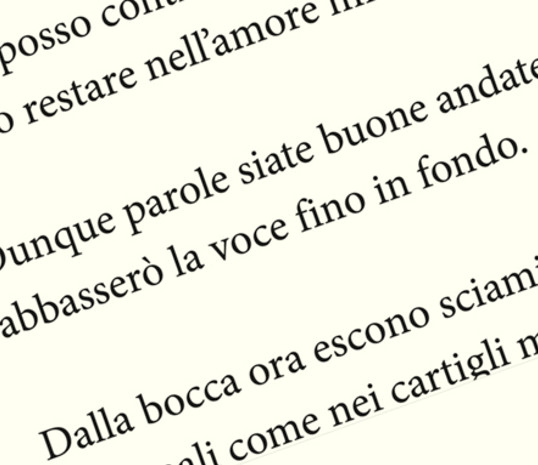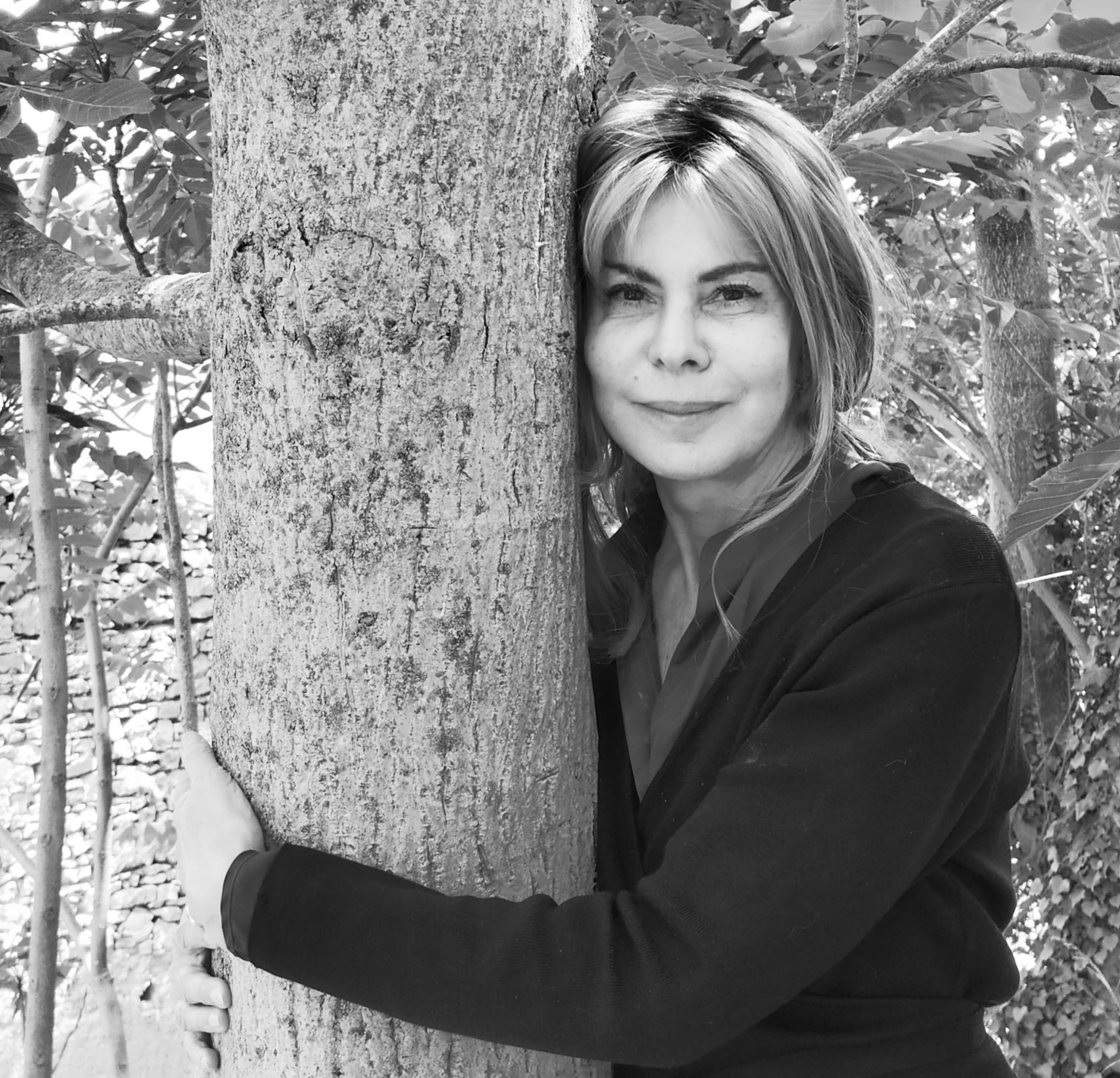
Tre Ghazal
GHAZAL DELLE PAROLE
Capite da sole parole che non vi posso mostrare
con voi farei del male.
Non posso continuare. Non voglio più ferire, non voglio lusingare
devo restare nell’amore minimo di un cerchio familiare.
Dunque parole siate buone andate nel silenzio,
abbasserò la voce fino in fondo.
Dalla bocca ora escono sciami di lettere
e animali come nei cartigli medioevali.
L’incontro dei vivi con i morti
dovrebbe servire soltanto a rinunciare.
GHAZAL DEL TUMULARE
‘Se ti attardi nel mondo, tutto si dilegua come un sogno’
Goethe
Verbo dell’osservare: l’acqua che sgorga dalle pietre e poi scompare.
Verbo del rinunciare: la erre si arrota inutilmente e poi scompare.
Il ruotare su un punto della mente coincide con il rifiuto di enunciare.
L’acqua si richiude sul mare, è la lezione del non accumulare.
Un passo dietro l’altro, lo sguardo sui rovi e sui licheni, sui resti delle
ossa
di animale, nulla da conservare. La terra è curva, le stelle si piegano
sui monti.
Ci siamo incontrati amico mio in un minimo segmento orizzontale
dove da tempo non esisteva nessun verbo da declinare.
GHAZAL DELLO SCHELETRO
Dice un proverbio che al diavolo non interessano le ossa
forse perché gli scheletri danno una grande pace,
composti nelle teche o in grandi scenari di deserto,
amo il loro sorriso fatto solo di denti, il cranio calvo
la perfezione delle orbite, la mancanza di naso,
il vuoto intorno al sesso e finalmente i peli,
questi orpelli, volati dentro il nulla. Non è un gusto del macabro,
ma il realismo glabro dell’anatomia
lode dell’esattezza e del nitore. Pensarci senza pelle
rende buoni. E per il paradiso
forse non c’è strada migliore
che ritornare pietre, saperci senza cuore.
Translation by Jamie McKendrick
English translation directly from the Italian by Jamie McKendrick
GHAZAL OF THE WORDS
Words, you’ve grasped on your own I can’t utter you
without doing ill or causing harm.
I can’t go on. I don’t want to wound or flatter
so I stay within the family circle’s minimal warmth.
So words be good, be gone into the silence.
I lower my voice so much it can’t be heard.
Out of my mouth letters and animals swarm
as in medieval painted parchments.
The meeting of the quick and the dead
serves only to teach us to renounce.
BURIAL GHAZAL
‘If you linger too long in the world, everything dissipates like a dream.’
Goethe
Verb of observing: water that gushes from a rock then disappears.
Verb of renouncing: the ‘r’ rolled in vain that disappears.
Circling a point in the mind coincides
with the refusal to pronounce or proclaim.
Water sealed like a lid upon the sea
teaches the futility of hoarding.
One step aft er another, gaze fixed on thorns
and lichens, on the scattered bones of animals.
Nothing to be preserved. Earth’s curve.
Stars lean over the mountains.
We met, my friend, in the narrowest horizontal segment
where for some time there’s been no verb to conjugate.
SKELETON GHAZAL
According to one proverb the devil takes no interest in bones
perhaps because skeletons radiate such peace,
laid in display cases or in wide desert vistas.
I love their smiles composed entirely of teeth, the bald cranium,
those finely rounded sockets, the absence of a nose,
the gap around the sex and finally the hair,
that tinsel, blown away to nothing. It’s not a taste
for the macabre but for the stark realism of anatomy,
for neat exactitude. To think of ourselves
shorn of skin ought to make us good-natured.
And is there a better way to enter heaven
than to return to stone, to know we have no heart?
Audio
Antonella Anedda reads Three Ghazals in the original Italian
Jamie McKendrick reads the English version of Three Ghazals

